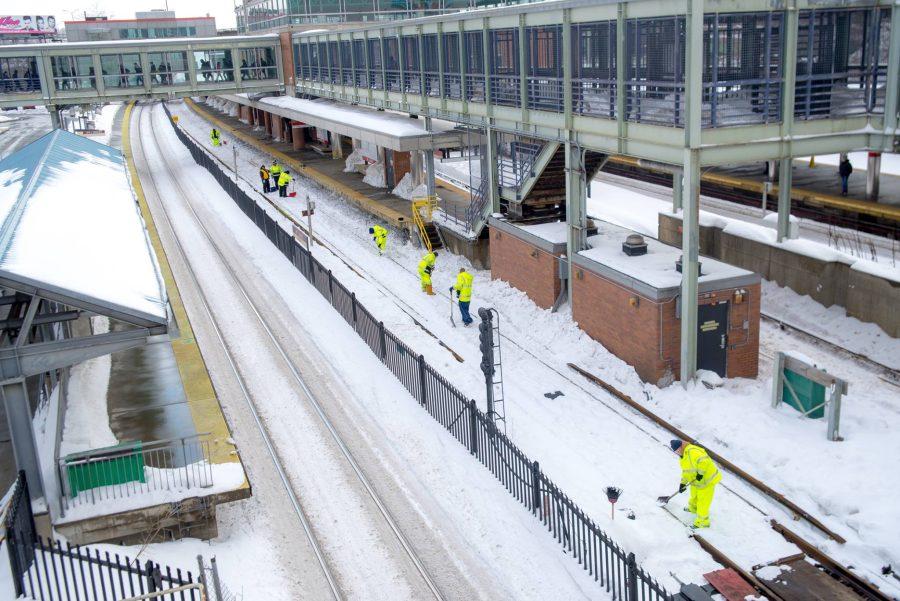It’s common Bostonian knowledge that the T is in desperate need of a revamp. At the best of times, with the sun shining, birds chirping, and driveways free from snow, the MBTA is late, slow, and extremely unreliable. Add seven feet of snow and strong winds to that equation and the MBTA becomes an unmitigated disaster characterized by overcrowded shuttle buses and smoky train cars. Yet this “snowmaggedon” might just be the best thing to have happened to the MBTA, and I do not mean that sarcastically.
Transportation in Massachusetts has been chronically underfunded for the last few decades, with the department continually contending with overextension, decaying parts, and insurmountable deficits. Despite increases in fares coupled with reductions in service almost two years ago, the MBTA has yet to significantly improve its financial standing.
Which is why Gov. Charlie Baker’s continued insistence that his recently passed legislation to gut funding for transportation would not negatively impact the MBTA borders on the delusional. According to the Boston Globe, the MBTA is $3 billion behind on its maintenance, as well in debt to the tune of $9 billion. Yet the newly elected governor of the state has taken measures to address the deficit problem by cutting transportation funding by $40 million, $14 million of which directly affects the MBTA. Perhaps there’s something Baker sees that the rest of us don’t which prompted him to take such action. But from where I’m sitting, the logic behind this decision is difficult to find.
Despite this, Boston T riders are really easy to please. Having ridden the T almost every day for the past five years, I’ve never really been truly frustrated. Sure, I’ve been mildly irritated by some especially pungent train cars, or by the constant unpunctuality of the service, but I’ve always just been satisfied. I’m certain this is a sentiment shared by most T riders. We’ve all known that the T was a crumbling disaster waiting to happen, but as long as it got us from point A to B in relative comfort, we’ve never felt the pressing need to hassle our legislators into action. But after the winter that we’ve been having, all that’s about to change.
After countless numbers of passengers have had to deal with finding last-minute means of transportation to go about their daily business due to the MBTA’s collapse, the chorus of dissatisfaction with the status quo has never been louder.
Twitter, otherwise known as the unofficial voice of our generation, has recently seen a tremendous increase in the use of the #MBTA hashtag. In the past 30 days alone—between Jan. 19 and Feb. 19—there have been about 80,000 tweets with that hashtag, and about 40,000 tweets containing the word “MBTA.” In the past 7 days there have been 28,000 tweets with that hashtag. In other words, people are finally talking about the T.
To add to the resounding chorus of disappointment with the state of the MBTA, a number of petitions calling for a revamp in the system have sprung up with more verve. A moveon.org petition started by Bridget Keown calling for the MBTA to abandon its plan to further raise prices has garnered almost 15,000 signatures since its inception. Another petition started by nonprofit transportation advocacy group Transportation for Massachusetts has accumulated over 8,000 signatures in the past 20 days.
It’s not much of a stretch to connect the sudden uptick in interest in the well-being of the MBTA with the recent severe weather conditions we’ve had to endure in the Northeast. T riders have finally seen the extent of the deterioration of the system. This is just the first step to recovery.

